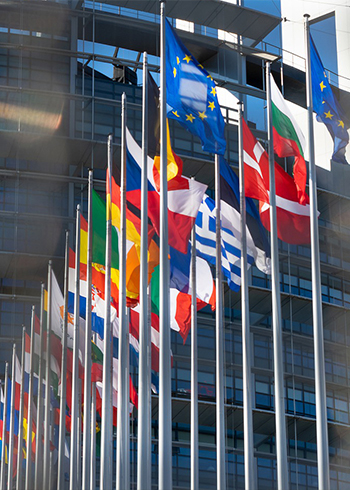Luciane Stallivieri at Pontificia Universidad Javeriana and Her Talk on Responsible Internationalization - Internacionalización
Luciane Stallivieri at Pontificia Universidad Javeriana and Her Talk on Responsible Internationalization
Author: Karen Peña Ocampo
Social Communication Intern at the Office of International Affairs.
On Tuesday, March 25, professor and researcher Luciane Stallivieri, from the Universidade Federal de Santa Catarina (Brazil), visited Pontificia Universidad Javeriana to discuss the challenges and opportunities of internationalization in academia and daily life. During her talk, she shared key data and statistics on the difficulties institutions face in this process, as well as the need for a comprehensive strategy that encompasses multiple areas.
“Internationalization is not a department, it is a behavior”
With this statement, Stallivieri emphasized the need to understand internationalization as a process that goes beyond academic mobility. It is not just about the exchange of students, faculty, and researchers between institutions, but rather a holistic approach that requires human support. This support should include guidance and education for participants, ensuring their emotional well-being, cultural adaptation, and respect for individual learning paces.
She also highlighted the importance of moving beyond traditional academic mobility routes and exploring new opportunities that foster creativity and global learning. Universities should not be seen as a single source of knowledge, but as universal spaces for learning that promote interculturally in education, research, and personal growth.
Therefore, it is essential to take gradual steps toward a structural and methodological transformation that fosters responsible internationalization. This requires active participation from all educational stakeholders, the implementation of innovative strategies, and the promotion of an open and curious mindset. The challenge is clear: to build an inclusive, sustainable model aligned with the needs of an ever-evolving global society.
Luciane Stallivieri en la Pontificia Universidad Javeriana y su charla sobre internacionalización responsable.
Este martes 25 de marzo, la profesora e investigadora Luciane Stallivieri, de la Universidade Federal de Santa Catarina (Brasil), visitó la Pontificia Universidad Javeriana para abordar los retos y oportunidades de la internacionalización en el ámbito universitario y en la vida cotidiana. Durante su intervención, compartió cifras y datos clave sobre los desafíos que enfrentan las instituciones en este proceso, así como la necesidad de una estrategia integral que abarque múltiples áreas.
“La internacionalización no es un departamento, es un comportamiento”
Con esta reflexión, Stallivieri enfatizó la necesidad de comprender la internacionalización como un proceso que va más allá de la movilidad académica. No se trata solo del intercambio de estudiantes, docentes e investigadores entre instituciones, sino de un enfoque holístico que requiere acompañamiento humano. Este acompañamiento debe incluir la guía y la educación de los participantes, garantizando el bienestar emocional, la adaptación cultural y el respeto por los ritmos de aprendizaje individuales.
Asimismo, destacó la importancia de superar las rutas tradicionales de movilidad académica y explorar nuevos horizontes que fomenten la creatividad y el aprendizaje global. La universidad no debe verse como una fuente única de conocimiento, sino como un espacio universal de aprendizaje que promueva la interculturalidad en la educación, la investigación y el crecimiento personal de cada individuo.
Por lo tanto, es fundamental avanzar paso a paso hacia un cambio estructural y metodológico que favorezca una internacionalización responsable. Esto implica la participación activa de todos los actores educativos, la implementación de estrategias innovadoras y la promoción de una mentalidad abierta y curiosa. El reto es claro: construir un modelo inclusivo, sostenible y alineado con las necesidades de una sociedad global en constante evolución.
